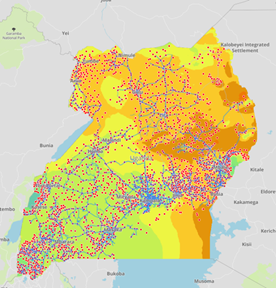Description

Disclaimer: Copyright infringement not intended.
Context
- The World Resources Institute had launched the Energy Access Explorer (EAE) in 2021. —EAE is an open-source system to ensure that everyone has access to affordable and reliable energy.
Background
- The Saubhagya initiative has claimed an electrification rate of 99.99 per cent and that only 18,734 households in India are without electricity. However, the quality and reliability of electricity access remain an issue.
- Power for All, reveals that energy access in India is 79.2 per cent. There are several gaps in energy access to critical sectors like health and education.
- Even in 2019, only 54 per cent of the healthcare facilities and 50 per cent of public schools were electrified.
- Healthcare, education and livelihoods sectors continue to remain un-electrified or under-electrified.

Importance of EAE in this scenario
- Energy Access Explorer (EAE) is an online, open-source, interactive platform that uses mapping to visualize the state of energy access in unserved and underserved areas.
- Through combining public data with custom analyses, this platform paints a clearer picture of energy access and, most critically, where it is lacking.

EAE map of healthcare facilities.
- EAE was first introduced in the state of Jharkhand in 2021 and more recently in Assam, in August 2022.
- The aim behind the EAE was to bring visibility to the areas that need attention.
Significance and Way Ahead
- EAE is a tool, that will help guide decision-makers who are tasked with the responsibility of ensuring socio-economic development in the state. It will further ensure that the country meets the Sustainable Development Goals targets.
- The most significant impacts of EAE have been in the health sector, where EAE analysis has helped prioritise 300 un-electrified healthcare facilities best suited for solarisation by the Jharkhand Renewable Development Agency.
- Plans are afoot to launch the EAE in one or two more states in Northeast India.
- Policies need to be constantly upgraded and updated — working at the state and district levels provides important inputs as to what kinds of changes state or national policies need to ensure the stronger impact on the ground.
|
World Resources Institute (WRI)
The World Resources Institute (WRI) is a global research non-profit organization established in 1982 with funding from the MacArthur Foundation. WRI's activities are focused on seven areas: food, forests, water, energy, cities, climate and ocean.
|
https://www.downtoearth.org.in/blog/energy/a-tool-that-identifies-gaps-makes-energy-access-a-reality-85026














